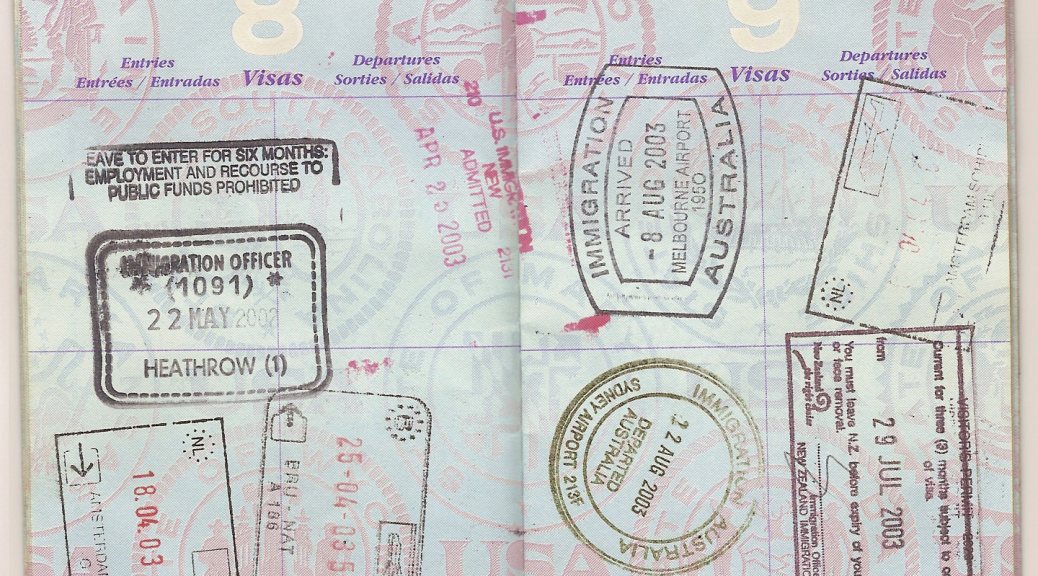
In this episode, Nathan Smith discusses the economics and history of migration and migration restrictions. Nathan is an Assistant Professor of Business Administration: Finance and Economics at Fresno Pacific University and regular blogger at Open Borders: The Case.
We start the episode by discussing the economic impacts of Nathan’s own migration to Fresno. Students gain, as he adds to the supply of economics professors, other economists might lose from his competition in labour markets, people looking for parking near the University might lose, as he slightly reduces the supply of available parking spaces, and property owners gain from his demand for housing. In general, anyone Nathan transacts with gains from the transaction, while those who he competes with may suffer some slight loss.
The big slogan among open borders advocates is that a significant reduction in migration restrictions could “double world GDP.” Nathan’s own most recent estimates show about a 91% increase world GDP, mainly because people would move from places where they can earn very little (e.g. places with dysfunctional institutions) to places where they can earn quite a bit more (e.g. places with well-functioning institutions, complementary factors of production, highly developed networks of specialization and exchange, etc.). There are complementarities between human capital and unskilled labour. For instance, great managers are more productive when there are many workers to manage, and the workers are more productive where there are great managers.
Nathan’s estimates indicate that as much as 44% of the world’s population could migrate under open borders. This may seem high, but even conservative estimates would put the number of migrants in the billions. While migration would be hard for the first few migrants, diaspora effects would start to make the process smoother and more desirable. In the 19th century, when international migration was less restricted and more common, migrants would form communities within their new countries: there would be a Polish neighbourhood, an Irish neighbourhood, an Italian neighbourhood, etc. These diaspora communities would function as gateways to the new culture, giving people a place to settle while they adjusted to the language and culture of their new country.
Today, with the exception of migration within the EU, there are no countries with open borders. While migration is somewhat easier for high-skilled workers, there are still many barriers. People call high-skilled migration “brain drain,” but that is really a perverse way of characterizing it. Are workers’ “brains” their countries’ property? Are they to be kept as forced labourers for their countries’ benefit? In addition, the idea of brain drain is empirically questionable. If getting high skills is a ticket to a better life in a different country, the possibility of migrating increases the incentive to gain high skills, thus offsetting the loss of those who eventually emigrate.
When people can migrate, or “vote with their feet,” this puts competitive pressure on governments. For instance, governments’ ability to institute very progressive taxation is curtailed by high earners’ ability to move elsewhere. That the Soviets had to build a Berlin Wall to keep their citizens from leaving shows that the possibility of exit was threatening to the Soviet government.
Some restrictionists compare immigrants to the Visigoths in the Western Roman Empire. That is a poor analogy to modern migration, as the Visigoths migrated as a complete political entity.
Not only do immigrants assimilate into the existing industries, they are disproportionately entrepreneurial, founding new industries wherever they go. Nikola Tesla, Andrew Carnegie, Sergey Brin, and Elon Musk were all immigrants. During the era of open borders, many of the innovations (such as Henry Ford’s assembly line) were designed to be complementary with all the low-skilled labour made available by migrants. Much of our modern technological development is focused on economizing on low-skilled labour, but low-skilled labour is only artificially scarce in wealthy countries. Many basic tasks that high earners do for themselves could be contracted out to low-skilled migrants. Childcare, for instance, could be very inexpensive under open borders; skilled parents would not need to leave the workforce to raise their children.
Nathan sees hope for more open borders in the future. Migration restrictions are contrary to people’s consciences, which makes them difficult to enforce. This may slowly erode the restrictions. Furthermore, Christian churches are essentially supportive of open borders. There is hope for the world in moving towards open borders, but it will require moral will.
Nathan Smith can be found online at Open Borders: The Case.
Download this episode.
Subscribe to Economics Detective Radio on iTunes or Stitcher.
The post Migration and Open Borders with Nathan Smith appeared first on The Economics Detective.


![]() In this episode, Glen Whitman discusses Economics of the Undead: Vampires, Zombies, and the Dismal Science, a book he co-edited with James Dow. Glen is an economics professor at California State University and, unlike most academic economists, he moonlights as a TV writer. He first wrote for the TV show Fringe and now writes for the soccer spy drama, Matador.
In this episode, Glen Whitman discusses Economics of the Undead: Vampires, Zombies, and the Dismal Science, a book he co-edited with James Dow. Glen is an economics professor at California State University and, unlike most academic economists, he moonlights as a TV writer. He first wrote for the TV show Fringe and now writes for the soccer spy drama, Matador.
